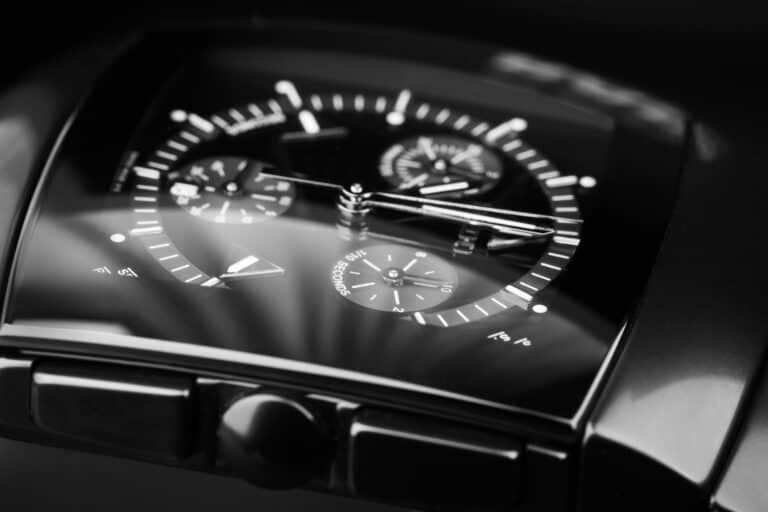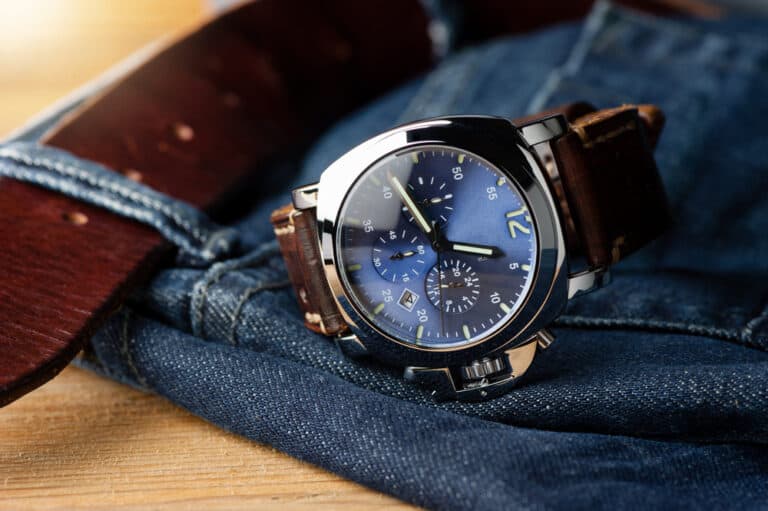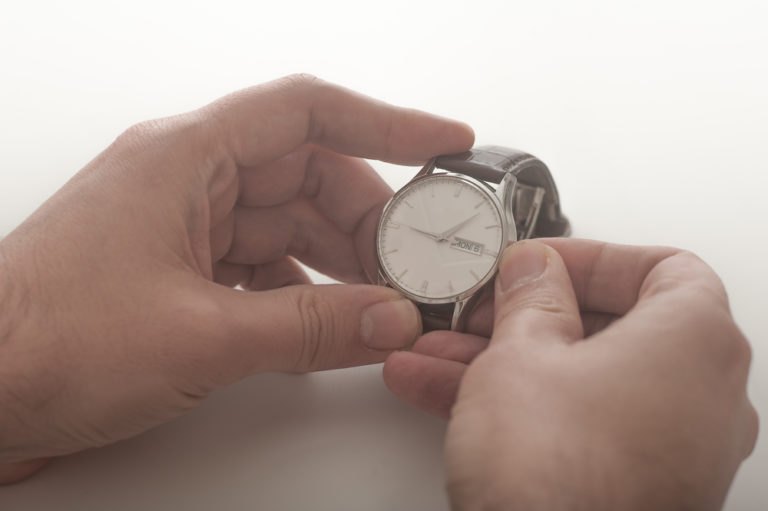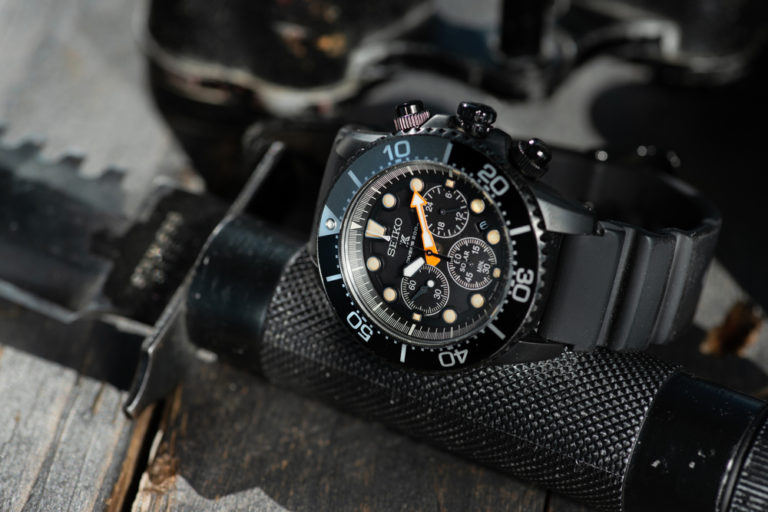Watch-making has been around since the late 1600s and developed in Switzerland centuries ago. It is a tradition passed down through generations and remains an integral part of the Swiss economy. Watch parts are carefully machined using CNC (Computer Numeric Control) lathes, milling machines, and precision grinders, then assembled by hand with only a few people touching each watch.
The main reason is because of the incredible amount of skilled watchmakers and, more importantly, how they operate. The best watchmakers take pride in their craft, they catch mistakes early on, they’re not afraid to experiment, and they want to sell a high-quality end product.
If you are trying to find out the reasons why all watchmakers are in Switzerland, I suggest you read on further. The following article may be of assistance to you.
Why Are The Best Watchmakers In Switzerland?
Watches have become more than regular timepieces. These wrist pieces have evolved through the ages into today’s elegant, precision-made watches. From your wrist, you now have control over appliances in your home!
The watchmakers in Switzerland are at the forefront of the invention and advancement of watches. Watches were introduced to Switzerland by the French Huguenots around the mid-1600s. Fleeing from the unrest in France, the Huguenots escaped to Switzerland, where they began to share their craft and skills with the local Swiss.
Around the same time Calvinism was taking a firm hold on the people of Geneva, and one of the doctrines of Calvinism prohibited the use of jewelry. Therefore Swiss goldsmiths and enamellers turned their skills elsewhere and learned watch-making from the Huguenots.
When the strict laws around Calvinism relaxed towards the end of the 17th Century, Geneva became known as the watch-making epicenter of Switzerland. The combination of skilled artisans with the artistic goldsmiths created the wrist pieces we all know and adore today.
In the early 1800s, entire families in the canton of Neuchatel were involved in watch-making. Their primary focus was pocket watches and scientific instruments. The skill and craft of watch-making spread out to other cantons in Switzerland like Neuchatel and reached the Jura mountains.
Many have accredited the high quality of Swiss watches to the artisans who spent the long winters in the mountains mastering their skills. Enclosed within their cabins, they tinkered with the smaller, intricate watch components assembling them by hand.
Towards the tail end of the 19th Century, watch-making skills we find craft spread out further to Basel and Schaffhausen.
The Swiss have mastered not just the art of watch-making but were also the first to introduce mass production of the watches. In this way, they were able to produce watches quicker than their competitors, the French and the British. Despite the mass production of watches, the quality, care, and precision were retained ’til this day.
By the 19th Century, however, the watch market saw the rise of American watches and became Switzerland’s primary competitor. American watches were more accurate than their Swiss counterparts, and this was a significant blow to the Swiss.
So as Swiss, they didn’t sit back and allow this newbie to take away their time-honed market. The Swiss met this challenge by fine-tuning their manufacturing processes with precision mechanical components.
Why Does Switzerland Have The Best Watches?
Switzerland is home to the finest watches and clocks in the world. Luxury watch brands such as Rolex, Omega, Breitling and Tag Heuer are produced there and it’s a fact that the Swiss produce an awe-inspiring variety of wristwatches – a staggering 50% of all the world’s best watches!
Only watches with the label “Swiss made” are regarded as authentically Swiss. A watch is deemed” Swiss made” if 60 % of the manufacturing costs and essential manufacturing processes are completed within Switzerland. For watches to have that label, they must fulfill specific quality standards.
On a broader scale, this is broken into three elements.
- The movement or the mechanics of the watch is of Swiss origin.
- The movement needs to be encased within the borders of Switzerland.
- The manufacturers that carry out the final quality inspection must also be within the Swiss border.
In 2017 the regulations were adjusted to include the following;
- No less than 60 % of the watch manufacture costs are to be covered by Switzerland.
- No less than 50 % of mechanical components are to be manufactured in Switzerland, and no less than 60 % of the mechanics need to be manufactured in Switzerland.
- The watch’s technical design and its mechanics need to be developed in Switzerland.
Although some may consider these regulations harsh, they ensure the authenticity of Swiss watches. However, the Swiss Government is still looking to adjust the regulation to increase the manufacturing percentage cost to at least 80 %.
These are why a watch is labeled “Swiss made.” But are they sufficient reasons for you to purchase a Swiss watch? Perhaps the following grounds may assist you before you make your final decision.
The mechanics of a Swiss watch are handmade and made of metal, and all the other components and pins are of high quality. This ensures a high-quality product that lasts a lifetime!
“Swiss made” means all watches are composed of high-grade, metallurgical stainless steel. Therefore Swiss watches are less prone to tarnish and are hypo allergic. Finally, the watch face is constructed of sapphire crystal. The hardwearing material protects the watch face from dents and scratches.
Therefore all these factors guarantee you have an exclusive timepiece that endures the adversities of time and one you can pass on down through generations.
Why Are Expensive Watches Made In Switzerland?
The fundamental reason Swiss watches are some of the most expensive in the world is because of the high quality of craftsmanship and precision taken with every watch manufactured.
Another reason is that the Swiss franc is a strong currency. Therefore, it helps to offset the cost of materials and labor. And the Swiss Government has favorable laws for companies that manufacture in Switzerland
Here are four reasons why Switzerland produces some of the most expensive watches.
1. New And Innovative Watch Mechanics
Swiss watchmakers continue to hone their skills by introducing new watch mechanics into their watches. The new mechanics are added after years of fine-tuning and perfecting. The components are placed by hand, guaranteeing an authentic Swiss product that lasts lifetimes.
2. Manufacture Of Swiss Watches
Unlike other luxury watch brands, Swiss watches take months to manufacture a product of high quality. And because it is such a high-quality product and the time taken to manufacture, a demand is created, which raises the prices.
Take a luxury watch like Patek Philippe Grand Complications, which takes approximately six (6) years to manufacture.
3. High-Quality Components And Parts Are Used
There are no other watches like those that are Swiss-made. Swiss watchmakers ensure that only high-quality components are used in their watches.
Only the highest quality materials like the highest grade gold, titanium, sapphire crystals, or diamonds are used in luxury watches that ensure your wrist piece is accurate and reliable.
4. Appeal
There is nothing more appealing or signifies luxury than a Swiss watch. For many, owning a Swiss watch stands as a status symbol; therefore, people are prepared to pay whatever the cost of owning one.
A recent study reveals consumers are prepared to pay up to 20 % more for these luxury watches.
So would you consider buying a Swiss watch? Undeniably Yes! For a product of such high quality, handcrafted with precision, and produced with the finest components that last lifetimes, I, like many around the world, consider a Swiss-made watch worthwhile.

Points To Consider In The Swiss Watch Makers Industry
There are specific points to consider regarding the Swiss watchmakers’ industry. Undoubtedly Switzerland is home to some of the world’s most famous luxury watches.
However, there are specific key points we need to consider regarding the Swiss watch-making industry.
1. Competitiveness
The watch industry in Switzerland is very competitive, with many brands and companies competing for a larger slice of the pie. For centuries Switzerland dominated the watch market.
Switzerland produces approximately 2,5 % of the world’s watches and 50 % of the global watch market, with the Swiss dominating the luxury watch industry. The Swiss produce approximately 95 % of the watches priced at $1000 and over.
2. Quality Craftmanship
Swiss watches are well known for their quality and craftsmanship, and consumers are willing to pay premium prices for a Swiss-made watch.
Swiss watchmakers have honed their skills and craft over centuries. The skills and sometimes tools pass down generations. Most exclusive Swiss brands are handcrafted, with some taking years to manufacture a single watch.
3. Competitors
The Swiss watch industry faces challenges from the rise of smartwatches and other time-keeping devices, which are fast becoming popular amongst watch lovers.
For example, the Apple Watch has proven a significant challenge for the Swiss watch market. Apple watches were launched in 2015, and since then, they have risen quite quickly as entry-level watches! In 2019 Apple watched sold more watches than Swiss watches.
Swatch has taken the biggest hit of all the Swiss watches, with sales dropping since Apple entered the market.
4. Swiss Watch Makers’ Contribution To the Swiss Economy
The Swiss watch industry is integral to the Swiss economy and employs many people. The watch industry in Switzerland accounts for 1,5 % of the Gross Domestic Product (GDP).
The watch industry is Switzerland’s third-largest exporter after pharmaceuticals and the machine tool industries.
In watch-making cantons like Geneva, Neuchatel, Bern, and Jura, the watch firms account for 90 % of the value-added in that sector. The watch industry in these cantons employs approximately 57 000 people.
5. Foreign Workers’ Contribution To Watch Industry
The watch-making industry in Switzerland was established by French immigrants fleeing the war in France. They passed their craftsmanship and skills to the Swiss, and so began a thriving industry that has since dominated the world markets.
In the sixties, Switzerland employed Italian women to work in watch factories. However, they were underpaid, which challenged relations between Italy and Switzerland.
Recently the Swiss watch industry has employed French nationals. In keeping with Swiss regulations, French nationals form one out of three jobs.
Switzerland Opens Markets To China
In the early 2000s, Switzerland opened further trade ties with China, creating a beautiful relationship between Swiss watchmakers and China. The value of watch exports to China increased dramatically.
However, over the last few years, the slowdown in China across all industries has negatively impacted the Swiss watch industry. And Swiss watches are no longer a favorite for many Chinese business people and high-ranking politicians.
Switzerland’s Exclusive Watches
Switzerland has around 350 watch brands, which are “Swiss made.” The five exclusive brands which dominate the luxury watch industry account for approximately 50 % of watch sales.
The top five exclusive brands are as follows;
- Rolex, one French advertiser, claimed, “if a person does not own a Rolex by the age of 50, they have failed in life.” It is a private company with an annual turnover of $5 billion
- Omega, a part of the Swatch Group, brings in $2,34 billion annually.
- Longines, also part of Swatch Group, has an annual turnover of $1,65 billion.
- Cartier is a part of the Richemont Group with a turnover of $1,59 billion.
- Patek Phillippe has a turnover of $1,35 billion.
- Tissot also forms part of the Swatch Group with a turnover of $1,05 billion.
- Audemars Piguet, with a turnover of $1,03 billion, completes Switzerland’s exclusive list of luxury watches.
Conclusion
There are several reasons why all watchmakers are in Switzerland. The first is that Switzerland has a long history of watch-making. The second reason is that the Swiss Government provides financial support to the watch-making industry.
The third reason is that strict laws and regulations regulate the Swiss watch-making industry. And finally, the Swiss watch-making industry benefits from the country’s skilled workforce and infrastructure.
Reference
- https://www.catawiki.com/en/stories/3077-why-swiss-made-watches-are-so-popular
- https://www.franckdubarry.com/content/9-what-is-a-swiss-watch-and-why-is-it-better
- https://www.lloydsauctions.com.au/insider/why-are-swiss-made-watches-better/
- https://www.myswitzerland.com/en/planning/about-switzerland/custom-and-tradition/watchmaking-on-the-cutting-edge-of-time/
- https://www.swissinfo.ch/eng/business/swiss-watchmaking–where-things-stand/45896950
- https://theculturetrip.com/europe/switzerland/articles/a-brief-history-of-watchmaking-in-switzerland/
- https://www.swissbiz.ca/is_article.php?articleid=132
- https://www.watchshopping.com/watch-guide/why-swiss-watches-are-so-expensive/
- https://www.timetofind.com/blog/why-switzerland-how-the-swiss-came-to-dominate-the-luxury-watch-industry/
- https://www.world-first.co.uk/home/news/why-switzerland-is-famous-for-watches$128040.aspx







